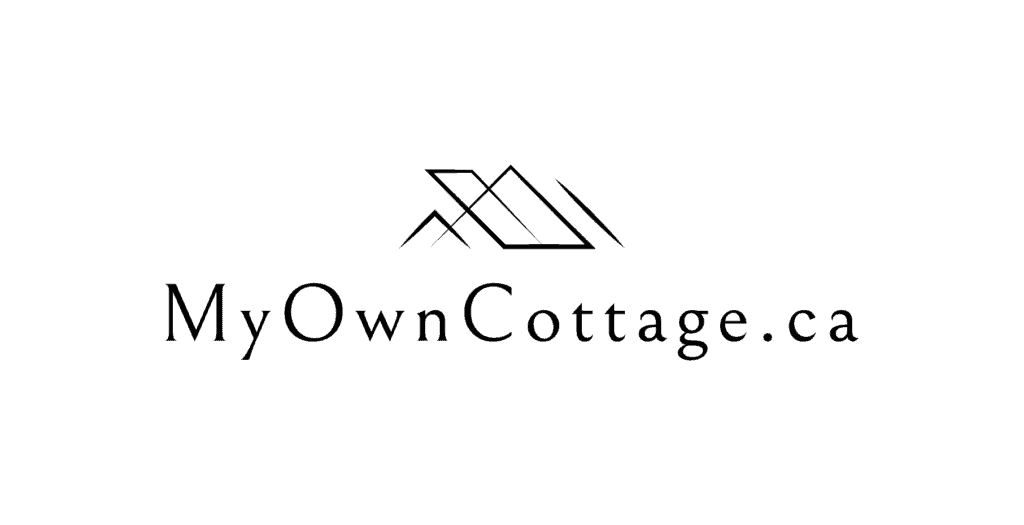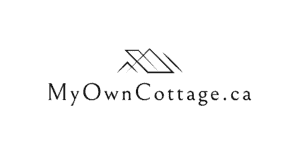Prefab Home Construction in Ottawa
Prefab home construction in Ottawa explained—from modular vs manufactured to process, costs, permits and real‑life case studies.
Discover smarter, faster building solutions in your region.
Prefab Home Construction in Ottawa – A Trusted, Expert Guide
Ottawa-area homebuyers seeking efficiency, energy savings, and quality turn to prefab home construction.
This article delivers vetted insights from real local builds, expert process breakdowns, and practical answers-empowering you to make informed decisions.
👉 For a comprehensive overview of the benefits, styles, and top builders, explore our expert guide to prefab homes Ottawa.
Prefab Home Construction in Ottawa Explained: Costs, Process & Benefits
Prefab home construction in Ottawa refers to building homes off-site in a climate-controlled factory, where components like walls, floors, and roofs are manufactured with precision.
These parts are then transported and assembled on your land, often in a matter of days.
This includes modular homes (built in large sections), panelized homes (assembled from pre-cut panels), and manufactured homes (built to federal standards).
All prefab homes must comply with Ottawa’s local building codes and often meet or exceed energy efficiency standards like Net Zero or Passive House.
Reputable local builders—such as My Own Cottage—coordinate the full process, ensuring your project is delivered on time, up to code, and ready for inspection.
How Prefab Differs from Traditional Stick‑Built Homes
All major components are fabricated indoors, eliminating weather delays.
Factory QA ensures consistent quality, precise material handling, and compliance with Ontario’s building codes.
Assembly at the site is faster—often weeks instead of months—with fewer on-site surprises and improved long-term energy efficiency.
Types of Prefab Homes in Ottawa: Tiny Homes, Coach Homes & Modular Designs
Homebuyers can choose from various types of prefab homes in Ottawa.
All backed by transparent pricing, builder warranties, and proven energy performance ratings.
Modular homes: Pre-built modules assembled on permanent foundations. Ideal from tiny home (400–600 sq ft) to larger modular housing (up to 2,500 sq ft).
Panelized homes: Panels for walls, roofs delivered and installed on-site—versatile for custom home floor plans.
Manufactured homes: Built to federal standards and delivered in transport-ready pieces.
Hybrid systems: Combine modules and panels—flexible house designs suited to dense urban infill projects or rural layouts.
Homeowners gain access to a variety of house styles, from tiny house models to coach home living, all with guaranteed pricing and energy performance figures.
Benefits of Prefab Construction in Ottawa: Speed, Affordability & Energy Efficiency
Faster Timelines During Harsh Winters
Ottawa’s harsh winters can delay traditional on-site framing, pushing timelines well into spring.
In contrast, prefab modules are built indoors in controlled conditions, then delivered and assembled quickly once foundation work is complete—even during cold or wet shoulder seasons.
This climate-resilient construction method allows for faster occupancy, making it ideal for accessory dwelling units (ADUs), coach homes, or full modular home builds in Eastern Ontario.
Local Builder Expertise & Supply Chain Reliability
Reputable prefab builders in the Ottawa area, such as My Own Cottage, offer more than just construction.
In fact, they provide fully furnished model homes, transparent pricing, and factory tours that let homebuyers see the quality firsthand.
These certified modular home builders follow strict quality control protocols and have a proven track record across Eastern Ontario.
Importantly, this is reinforcing trust, transparency, and consistent delivery in the modular housing industry.
Step-by-Step Prefab Home Construction Process in Ottawa
Step 1 – Prefab Home Design & Planning with Local Experts
Start with a site evaluation, including soil testing and local zonal analysis (e.g. Kanata, Barrhaven, North Gower).
Choose from prefab floor plans—tiny home, coach home, or larger modular layouts adjusted for energy efficiency, laundry room planning, door handles, HVAC systems, and renewable energy features.
Benefit from energy compliance expertise (Net Zero or Passive House).
Step 2: How Prefab Homes Are Built in the Factory
Build occurs in factory under controlled conditions with quality control and workplace safety certifications.
Components pass QA inspections—ensuring premium building materials, structural integrity, and standards adherence.
Systems such as structural framing, electrical wiring, and insulation are precision-crafted.
Step 3: Delivery and On-Site Installation of Your Prefab Home
Modules or panels arrive via heavy-haul trucks after foundation work.
Local permits manage logistics: road access, crane use, site staging, and municipal inspections.
On-site supervision ensures finishes, utility connections, and code compliance result in a high-quality, energy-efficient home.
Prefab Home Construction Costs in Ottawa: What to Expect
Prefab Home Prices in Ottawa by Size and Type
| Home Type | Size (sq ft) | Estimated Cost (CAD)* |
|---|---|---|
| Tiny home | 400–600 | $150,000–$200,000 |
| Coach home | 900–1,200 | $250,000–$350,000 |
| Modular bungalow | 1,200–1,600 | $350,000–$450,000 |
| Larger modular house | 1,800–2,500 | $450,000–$600,000+ |
🔍 For a transparent breakdown of modular and prefab building costs, explore our expert-curated guide to prefab homes Ottawa prices.
How to Save Money on Prefab Home Construction in Ottawa
Reduced labour and build time lower financing interest.
Efficient material use and bulk ordering reduce waste.
Many builders include price guarantees, energy credits for solar or Passive House upgrades, or financing incentives tied to energy efficiency.
Zoning and Permit Requirements for Prefab Homes in Ottawa
Where Can You Build a Prefab Home in Ottawa?
Zoning varies across Ottawa neighbourhoods: some urban areas permit accessory dwelling units (ADUs) or coach homes; others limit prefab models to rural or suburban zones.
Review local municipal by‑laws—especially in Kanata, Orleans, Barrhaven, and North Gower—to confirm allowable prefab housing.
How to Apply for a Prefab Home Building Permit in Ottawa
Submit engineered plans, site plan control, and compliance documents for energy standards.
Comply with environmental and inspection timelines—approval typically requires 4–8 weeks.
Builders often manage the permit workflow on your behalf, ensuring complete submission and deadlines.
How to Choose a Trusted Prefab Home Builder in Ottawa
Key Questions to Vet Pros
Can you share case studies or homeowner testimonials from Ottawa builds?
Do you build to Passive House or Net Zero standards?
What warranties and quality assurance processes are offered?
Is there a price guarantee or escalation clause?
Red Flags to Avoid
No opportunity to see a factory or model home.
Builders unfamiliar with local codes and uncertified crews.
Vague contracts, hidden fees, or vague scope details—avoid ambiguity and insist on transparency.
Real‑World Examples from Ottawa Build Projects
Glebe Urban Infill Coach Home
Replaced a teardown lot and was completed in under 12 weeks.
The homeowner praised the modular build for energy efficiency and rapid timeline.
North Gower Hybrid Passive House
1,600 sq ft custom-built home featuring solar panels, heat-recovery ventilation, and custom floor plans tailored to site exposures.
Achieved better-than-code energy performance.
Prefab vs Modular vs Manufactured Homes
Modular homes: Fully constructed indoor modules placed on permanent foundations.
Panelized homes: Kit panels assembled on-site for walls and roofs.
Manufactured homes: Built to federal HUD standards and often transportable.
These definitions help homeowners distinguish home types and pick the right plans for their Ottawa build project.
🔨 Ready to Explore Prefab Home Construction in Ottawa?
Ready to plan your prefab homes Ottawa project?
Trust our team of certified building professionals committed to transparent pricing, verified references, and sustainable building practices.
Book a free consultation or call us directly to day to get started!
🧑💼 Request a Free Consultation
📲 Call Us Directly: (705) 345-9337
✅ Ontario-Built | ⚡ Energy-Efficient | 🏡 Fully Customizable | 🚚 Fast Delivery
Alternatively, for your convenience, you can also simply fill out the contact form below and we’ll get back to you soon! 👇
❓ FAQ About Prefab Home Construction in Ottawa
How much does a prefab home cost in Ottawa?
Prefab homes in Ottawa typically cost $120 to $250 per square foot, depending on size, materials, and finishes. A 1,000 sq ft home generally ranges from $150,000 to $300,000+, excluding land and utilities.
Are prefab homes legal in Ontario?
Yes, prefab homes are legal across Ontario, including Ottawa. They must meet Ontario Building Code standards and pass local zoning and permit regulations.
How much does it cost to build a prefab home in Ontario?
Building a prefab home in Ontario costs between $140,000 and $500,000+, based on square footage, layout complexity, and customization. Pricing excludes land acquisition and landscaping.
How much is a 1,000 square foot prefab home in Ottawa?
A 1,000 sq ft prefab home in Ottawa costs approximately $180,000 to $260,000, depending on materials, design, and site conditions.
What are the best options for small prefab home construction in Ottawa?
Top small prefab options in Ottawa include tiny homes, coach homes, and modular ADUs under 1,000 sq ft. Builders like My Own Cottage, Guildcrest Homes and Legendary Group offer compact, energy-efficient designs.
Where can I find prefab home construction in Ottawa with prices?
Ottawa prefab builders like My Own Cottage, Royal Homes and Quality Homes provide detailed pricing online, usually ranging from $150 to $250 per sq ft, plus delivery and site prep.
Are there prefab homes for sale in Ottawa?
Yes, several builders offer prefab homes for sale in Ottawa, including turnkey packages, model homes, and build-to-order options. Contact local providers for availability.
What are modern prefab homes like in Ottawa?
Modern prefab homes in Ottawa feature sleek architectural designs, smart home tech, and energy-efficient materials—many built to Passive House or Net Zero standards.
What is the best prefab home construction company in Ottawa?
Top-rated companies include My Own Cottage, Guildcrest Homes, Royal Homes, and Legendary Group, known for quality craftsmanship, transparent pricing, and energy-efficient designs.
Is prefab home construction in Ottawa affordable?
Yes, prefab construction in Ottawa is often 10–25% more cost-effective than traditional builds, thanks to faster timelines, factory efficiency, and reduced labor costs.
What do I need before building a prefab home in Ottawa?
You’ll need land, a site plan, and permits from the City of Ottawa. Builders typically help with zoning compliance, design, and local permit applications.

